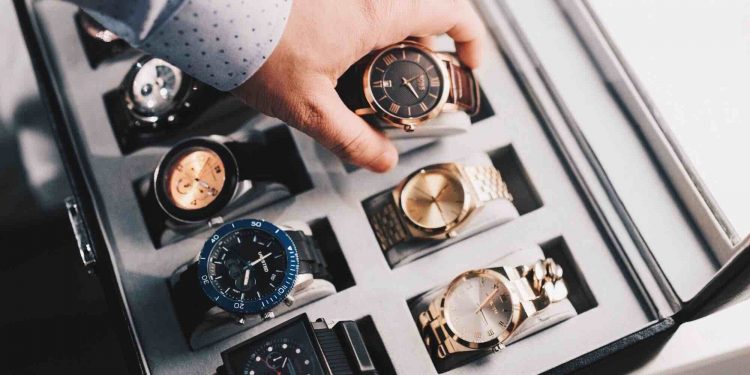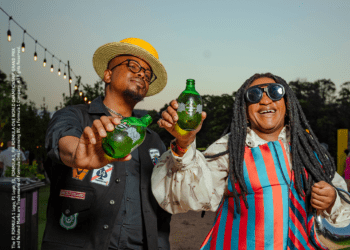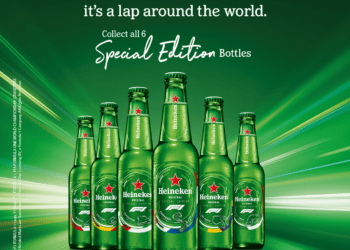The global luxury resale market is booming, with it forecast to be worth US$51.77 billion by 2026, up from US$32.61 billion in 2021. This upward trend is also being seen on the African continent, with Michael Zahariev, co-founder of Luxity, the region’s largest pre-owned luxury reseller, saying that by 2027, one in 10 luxury items bought in Africa will be pre-owned.
Luxity has recently published the fifth edition of the State of the Luxury Market in Africa 2022 report, which highlights that one of the biggest drivers of the continent’s penchant for pre-owned luxury is demand continues to grow faster than supply, especially as many brands do not have a presence here. “This has been evidenced not only by the growth of average resale prices, but also the percentage of their resale value too when compared to the retail price of items bought new.
“For example, the resale value of Christian Dior goods skyrocketed from under 45% in 2018 to just over 60% in 2022, with average prices increasing from R9,000 to R15,000. What this means is that consumers are now willing to pay prices closer to those of new purchases,” explains Zahariev.
He adds that with consumers being prepared to pay more for pre-owned luxury items, this also points to factors beyond price, such as increased access, propelling African consumers into the pre-owned luxury market. “The upsurge of omnichannel retail on the continent in the wake of the pandemic, for instance, has had a profound impact, with customers now having access to pre-owned luxury retailers across multiple channels including physical, online, and social.”
Leading luxury brands in Africa
In terms of the top brands amongst Africans, the report reveals that Louis Vuitton has once again taken the number one spot for the fourth year in a row, accounting for 1 in 5 search’s, with Chanel and Gucci tussling for second and third place. After being knocked off the list last year, Christian Louboutin returns in fourth place with Hermès dropping down to fifth – just narrowly making the list this year. “This was a stellar year for Louis Vuitton which was able to place in the top three for resale value across four of the five categories considered in the report – bags, shoes, accessories and clothing, only missing out, unsurprisingly, on watches,” shares Zahariev. Overall, Louis Vuitton’s resale value improved from 64% in 2021 to 67,8% in 2022.”
Top luxury web searches revealed
Louis Vuitton is also one of the most popular brands when it comes to web searches. Over the past year, Africans have looked it and Gucci up more times than the rest of the top 10 most searched luxury brands combined. Additionally, this year saw searches for pre-owned luxury shoes outpacing bags for the first time in the history of the report. According to Zahariev, “This is an indication that consumers may be moving towards more attainable items which is further supported by searches for clothing taking third spot, despite only being introduced during the current reporting period.”
Returns on investment greater than gold
With certain pre-owned luxury items also being an investment since their value typically appreciates over time, the report tracked the prices of some top investment pieces over five years to gauge returns. Among pieces fetching price tags of over R100 000, the Chanel Classic Medium Flap came out tops, returning 111.5% over the five-year period. On the other hand, the trusty Birkin showed a modest 27.2% increase.
Louis Vuitton dominated the category of investment pieces with a lower price point, with many discontinued styles performing strongly unabated year over year. The Louis Vuitton Favorite MM, for instance, performed remarkably well with a return of 263%, driven by ever-increasing prices and a greater acceptance of pre-owned goods generally over the period. Zahariev points out that gold, in comparison, only returned 67.27% during the past five years.
He adds that within watches, Rolexes continue to offer the highest resell value when compared to new purchases, achieving an average of 82.65% of the current retail price. “By limiting supply and access to rarer models, Rolex has been able to sustain increasing demand year on year for their products. This has led to boosted prices in the second-hand market where some models can trade at a premium of more than 100% to new.”
“Luxury brands continue to have a strong appeal in the African market, with Louis Vuitton and Gucci having created a strong foothold. Pre-owned continues to grow in popularity with price and volume trending upwards year on year with no signs of slowing down,” concludes Zahariev.
For more information, or to read the complete State of Luxury Market in Africa 2022 report, visit https://luxity.co.za/state-luxury-market-africa-2022-report/



































